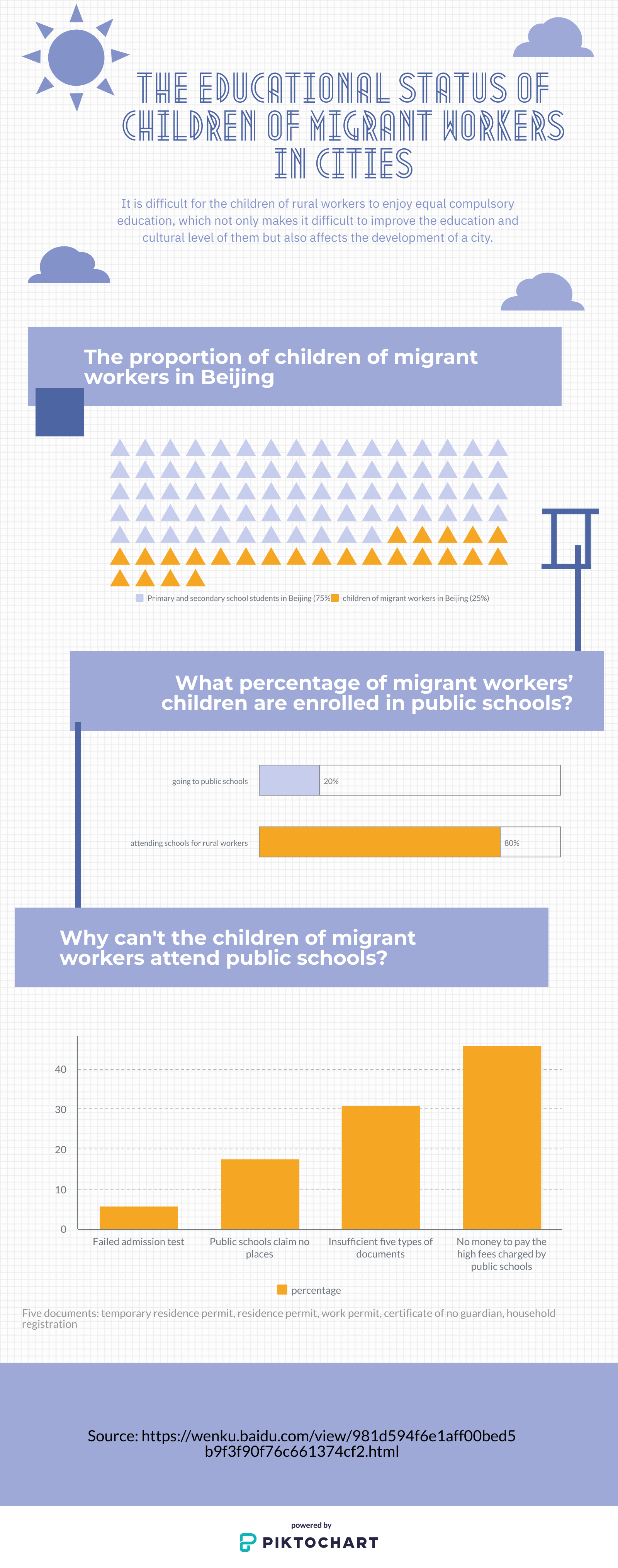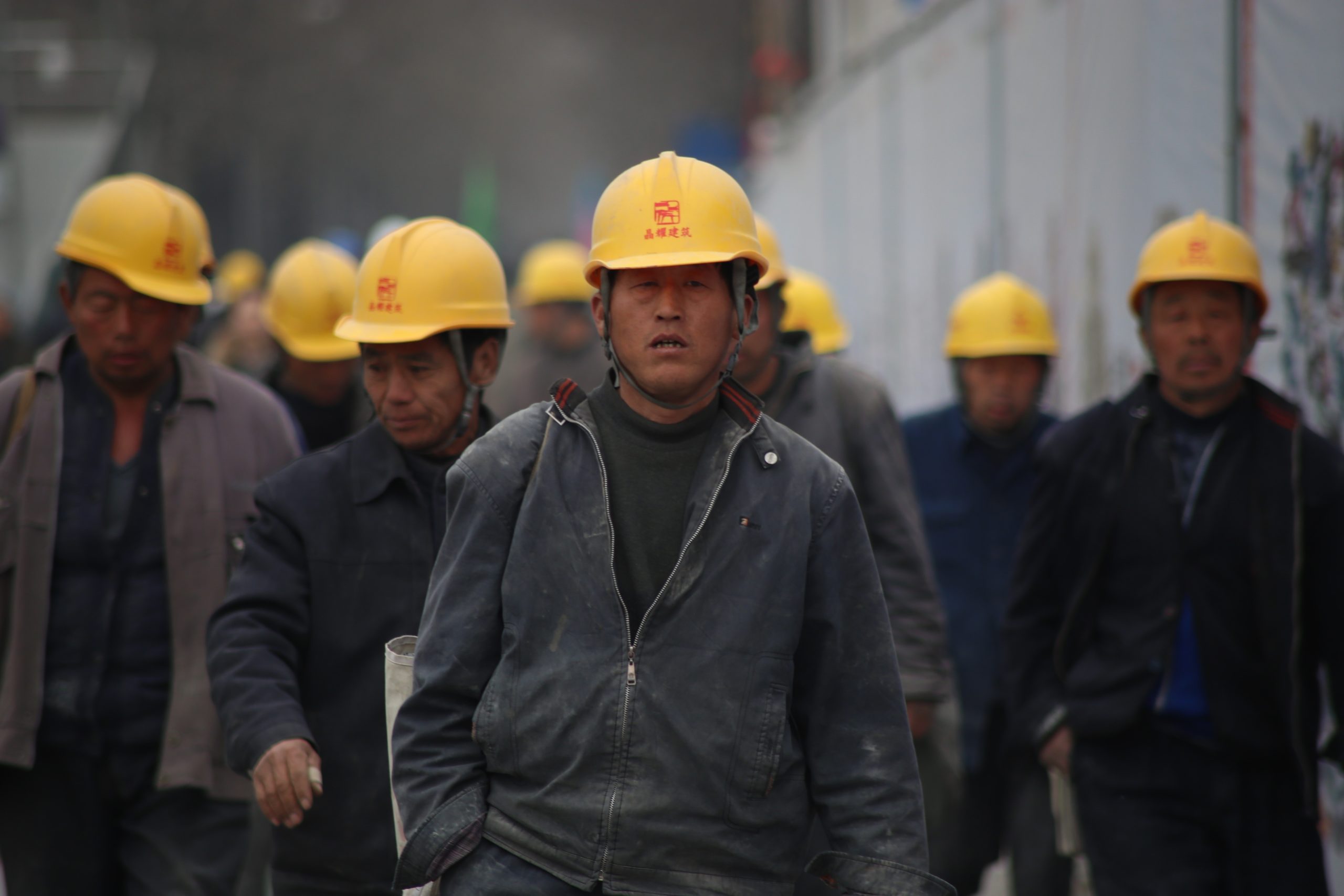It is a matter of course that parents accompany their children as they grow up; however, there is a group in China that must pay a high price to make it happen. What challenges are they facing?
Jun Zhou just got home at 9:30 pm. His 7-year-old son, LingLing, is ready to go to bed. He sits in front of his son’s bed and tells him today’s bedtime story.
At the end of the story, his son looks at him and says. “Dad, when can we go to the amusement park and go to the park to ride a bicycle? You promised me last week, but you did not keep your word!” Lingling asks.
Jun kisses him and promises to go with him to do what he wants to do and to buy his favorite Spider-Man toy for his birthday next month. The son nods happily, closes his eyes and falls asleep.
Jun is a bus driver in Guiyang, a big city in southwestern China. Due to the particularity of his job, he must leave home at 6 am and return home at 9 pm every day. The company stipulates that employees must work at least 16 days a month. In order to earn more money, he worked 27 days last month. Jun only gets 30 minutes to spend with both his wife and son together before he must go to sleep.
“We do hope that our child will have a bright future. Hence, I must work very hard to afford the high living expenses and the child’s tuition fees in the city,” said Jun.
In addition to buying milk and fruit for Lingling to supplement his nutrition, Jun also spends a lot of money on his education. Lingling is going to primary school this year but the admission fee is very expensive.
“Me and my wife work all day and have to send Lingling to daycare after school. It is 1,000 yuan (120 pounds) a month, “Says Jun.

In China, people like Jun who move from the countryside to the city are known as rural workers, whose children are called migrant children. According to the data from the National Bureau of Statistics in 2018, there are 244 million rural workers in China, accounting for 18% of the total population, which is equivalent to one in six people. Also, there are more than 14 million migrant children.
For migrants who do not have urban hukou, which is a system that limits movement of people, dividing them into rural and urban populations, their children have no access to free education in the cities. If they want to keep their children in the city, they must pay a high tuition fee to the school, which puts a lot of pressure on the families.
Many friends around Jun left their children to live with their parents in the countryside. According to the Research Office of the State Council of the People’s Republic of China, there were 9.02 million children left behind in rural areas during 2019. However, Jun and his wife decided to keep their child in the city. Besides wanting to be there as Lingling grows up, they want him to have access to a better educational system that is there in cities.
“My wife and I spend most of our wages on our child’s education. We will do everything we can to put our child in school so that he can have the same educational opportunities as children born in the city. Whether he wants to go to university, even if go abroad, I will support him. This is the biggest wish of my life as a parent,” Jun has this idea mainly because of his own experiences.
Jun’s parents made a living through farming to fund the life of their four children. However, due to the high amounts of financial pressure, Jun’s family could only keep one child in school, which was Jun. To earn the tuition fee, however, Jun dropped out of junior high school for a year and worked with his uncles in the village. Furthermore, his parents borrowed money from loan sharks to support him in completing high school.
“I know exactly how hard my parents worked to support my education. Now our living standard is much better than before, why can I not allow my children to study?” Moreover, he is not only deeply influenced by his parents, but also finds that people’s living conditions vary greatly due to their level of education.
Jun’s younger brothers and sisters still farm because of their lack of education, and their children can only receive education in the countryside. “Their life is much more difficult than mine. Their children go to school in the countryside while mine go to school in the city. They are exposed to different things and have different horizons that affect their future,”
“However, compared with some of my classmates, who are going to college, they earn far more money than me and they have more choices for their employment because they have higher diplomas. So, I realised the importance of education and I especially hope that the next generation can learn much knowledge, ” Jun said.
As a result, he spends most of his income on his son’s education instead of saving money to build a house back in his hometown. However, living in the city, in addition to facing the financial pressure, they must face the challenge of how to integrate into the city life.

If migrant families want to integrate into urban life, they need to gain a sense of urban identity, as to relieve the psychological pressure brought by the unfamiliar environment. However, many local people are not willing to accept them or even discriminate against them, which has a negative impact on their mental health such as low self-confidence, insecurity and poor communication skills, especially for children of rural workers.
“The children born in the city would repel the students from the countryside. Lingling’s classmates would ignore him and sometimes bully him. I think he would feel a little depressed and his personality is not as cheerful as before,” Jun said.
In some cities, migrant children would be sent to different schools than urban children, making it more difficult for migrant children to integrate into the city. Huan Luo is a teacher at a public primary school in Guiyang that only accepts children of rural workers. Huan said the advantage of such “segregated education” is that students come from families with the same background. There is no discrimination in schools, but it is not good for migrant children to integrate into the city.
“Some of students in our school grew up in the city, but they do not have many opportunities to contact urban people. Also, they have few chances to visit the cities, such as going to the cinema or gallery. As a result, they cannot have a sense of belonging and broaden their horizons, ” Huan said.
The issue of promoting the integration of migrant workers into society is urgent, according to Dr Zhaoxin Huang, who works on the education of rural workers’ children at Wenzhou Medical University.
“If migrant children on such a large scale cannot smoothly integrate into the life of the city, it may trigger strong anti-social sentiment,” Dr Huang said.
At present, public schools in some cities in China have started to act, such as carrying out mental health education and organising social practice activities to enable migrant children to integrate into the city better and faster. But Dr Huang suggests that such educational activities are inefficient and one-sided, as the education department needs to take more effective measures.
“Schools should cultivate students’ adaptability and social communication skills and enhance students’ sense of self-identity and cross-cultural communication skills to truly implement the concept of integrated education,” Dr Huang said.
Rural workers and their families must face many difficulties living in the city, but they are still struggling to stay with their children and provide them with the best education available to them.
“I do not want my children to work as hard as I am, and I hope that he will be able to choose the lifestyle he wants and have more job opportunities when he grows up. so I will try my best to help him by working hard, ” Jun said.
Click the video to know that what are the main jobs of migrant workers?

